The second chapter in our series on Agribusiness Safety will cover the guidelines for the proper use of chemicals.
ACUTE Environmental and Safety offers high-quality workplace health and safety training including agribusiness safety training. We are celebrating our 25th anniversary in 2020. Join the many thousands we have trained over the years. Register here today.
Now let’s take a closer look at how to use chemicals safely in your agribusiness.
Here are links to all the chapters in the series:
Chapter 1: Personal Protective Equipment
Chapter 2: Guidelines For Use of Chemicals
Chapter 3: Operating Machinery
Chapter 4: Preventing Fires
Chapter 5: Tips for Buildings and Structures
Chapter 6: How ACUTE Can Help
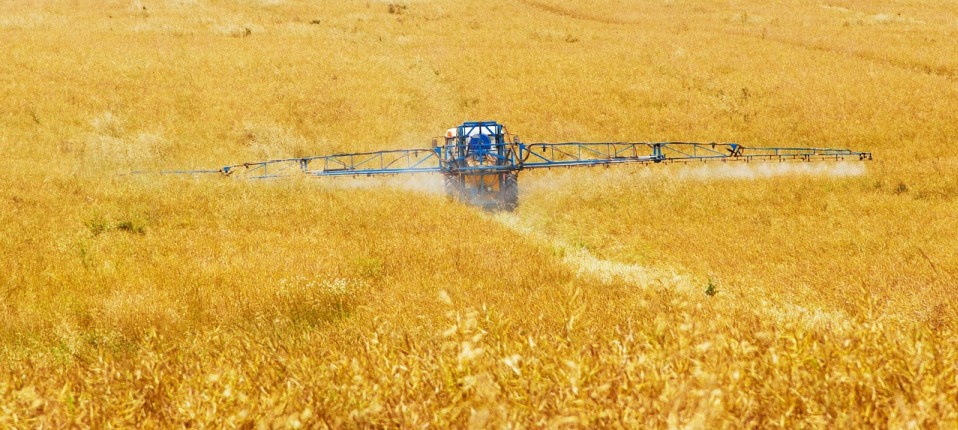
Learn about the guidelines surrounding Agribusiness safety when using chemicals
Agribusiness Safety: Guidelines Pertaining to the Use of Chemicals
If you run or work in an Agribusiness, then it’s important to make sure you understand and follow agribusiness safety guidelines. Agribusinesses include businesses such as:
- Farms
- Companies involved in AgroSciences
- Animal Feed companies
- Biofuel companies
- Grain transport and processing companies
- Farm machinery producers
- Farmer’s cooperatives
Read on to learn more about important agribusiness safety guidelines.
Get Proper Training:
Chemicals can be harmful to both people and the environment. In order to protect your workers, livestock, crops and wildlife, you need to make sure that you have only authorized and properly trained employees using chemicals in your agribusiness. In addition, only licensed or certified operators should apply chemicals.
If you need to get training for yourself or your workers, ACUTE Environmental Services can help. We can provide you with the proper training for your employees who work with chemicals. We can customize a course to meet your particular requirements and we can perform the training either at our world-class training facility or we can come to your place of business; whichever your prefer. Contact us today to learn more.
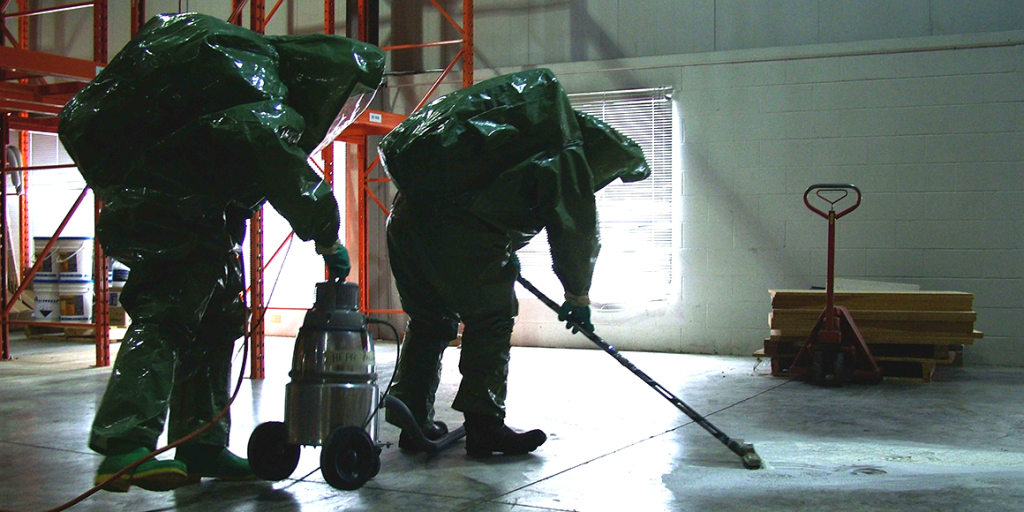
Agribusiness Safety: ACUTE can give you and your staff the training you need to stay safe
Make Sure You Are Properly Supervised:
Employees should only handle chemicals if they have been properly instructed ahead of time and authorized to do so. They should only handle them under the direction of a supervisor.
Wear Personal Protective Equipment (PPE):
When you are handling chemicals, you must wear the appropriate personal protective equipment. This will help reduce your risk of exposure to the harmful chemicals like pesticides. This includes when you are mixing, applying, and disposing of these chemicals.
Your employer should provide you with all of the PPE that you require, but the operator should make sure that their own PPE is properly maintained. If anything needs to be replaced or repaired, make sure that is done before you handle any chemicals.
Labels on chemicals usually specify the different types of PPE that should be worn while using that type of chemical. Here is a breakdown of the types of clothing that will help you stay safe when you maintain the highest level of agribusiness safety when working with chemicals.
Gloves:
Your hands need special protection when handling chemicals. Wear unlined, clean gloves that are at least 12 inches long and have sealed seams and that are made from Nitrile, neoprene, or butyl rubber when you are handling undiluted or highly toxic pesticides.
Footwear:
You need to protect your feet from any chemical spills. Wear unlined neoprene or butyl rubber boots. You can also place Tyvek shoe or boot covers over your footwear.
You should put your pant legs over your boots and make sure that your thoroughly clean the outsides of your boots when you are done using the chemicals and before you remove them.
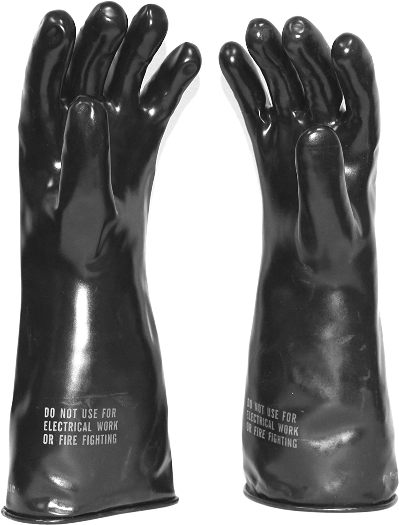
Clothing:
It is recommended that you use a chemical-resistant apron and face shield when you are mixing and loading chemical. Some chemicals, however, will require you to wear some type of a protective suit. If you don’t need to wear a protective suit, you should still wear long pants and shirts with long sleeves that are buttoned at your wrists and neck.
When you are mixing, loading, or handling undiluted and toxic pesticides, you should be wearing chemical-resistant clothing. Make sure that you wash the clothing that you have worn while handling chemicals separately from the rest of your laundry.

Eye Protection:
To protect your eyes from chemical splashes and dust particles you should wear one of the following:
- A face shield that fits on a hard hat
- Goggles with a negative-pressure respirator or dust mask or
- Shielded safety glasses with a negative-pressure respirator or dust mask
Make sure that your goggles or safety glasses fit snugly around your nose at at your temples.

Properly Store all Chemicals:
You must keep all chemicals in their original containers. They need to be stored inside an approved locked room or cabinet and this storage area needs to be marked appropriately. If you have herbicides, they need to be stored in a separate location away from all other types of pesticides so that you don’t have cross-contamination.
Properly Dispose of Chemicals:
You need to make sure that you dispose of any unused chemicals according to the directions on the label. In addition, you should check with your local municipality to find out any laws they might have around the disposal of chemicals.
Additional Agribusiness Safety Tips for Chemicals
- Never smoke or eat while chemicals are being used.
- Follow all the rules of personal hygiene when you are using chemicals.
- Report any chemical spills to your supervisor immediately.

Are You an OABA Member? Contact ACUTE for Training
If you are a member of the Ontario Agri Business Association (OABA) then you can contact ACUTE Environmental & Safety Services to provide you with the training that you need to meet your obligations set out in federal and provincial health and safety legislation.
The OABA has partnered with ACUTE to give its member access to the expanded resources and training services that ACUTE can provide you to ensure your success with the health and safety compliance programs.
To book safety services including training, inspection, audit, and consulting, you can contact ACUTE Environmental & Safety Services either:
By Phone: 519-747-5075 or
By Email: info@acuteservices.com
Would you like to hold staff safety training at your own location? Click here to learn more.
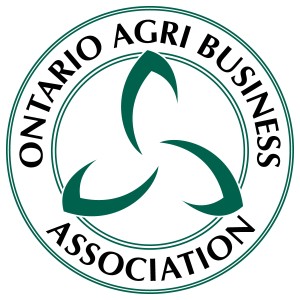
How ACUTE Can Help with Training
ACUTE offers a wide range of training courses that you can either take at our Waterloo, Ontario training facility or we can come to your location and provide the training you require.
The following is a list of some of the training courses that we provide, however if you prefer, we can also develop customized training for you that is based on your particular needs as an OABA
Confined Space Entry-(attendant/entrant 8 hours)
Confined Space Rescue-(non-entry/entry 8 hours)
Working at Heights-(8 hours)
Elevated Work Platform-(scissor/boom 8 hours)
Forklift-(8 hours)
Telehandler-(8 hours)
Overhead Crane-(8hrs)
Spill Response-(8 hours)
Transportation of Dangerous Goods-(8 hours)
Lockout/Tagout Awareness-(4 hours)
Personnel Protective Equipment-(PPE4hours)
Canada Labour Code Part 2-(4 hours)
Supervisory Due Diligence-(4hours)
Machine Guarding Safety-(4 hours)
Occupational Health & Safety Act & Regulations-(4hours)
Confined Space for Management (never go into confined space – 4hrs)
WHMIS 2015 GHS-(2 hours)
Our safety training sessions include both in-class theory and practical hands-on training. We will also supply you with the training guide, quiz, various visual aids, certificates of training, and wallet cards.
Trust ACUTE for the Best Agribusiness Safety Training
ACUTE’s experienced team members have been serving safety professionals for over 20 years. You can trust ACUTE for hands-on, practical agribusiness safety training to keep your employees safe. ACUTE is dedicated to workplace safety and understands the importance of course and training provider approval. Why get workplace safety training with ACUTE? Here are just some of the benefits of working with ACUTE.
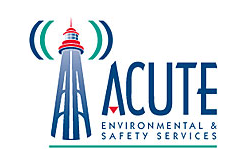
- Open Door Instructor-Student Partnership – ACUTE’s training services emphasize client participation. Staff foster relationships with clients and serve as a touchstone for advice anytime moving forward.
- Serving Your Team and Industry – With a vast array of clients in manufacturing, construction, health, academic, and government sectors, ACUTE brings the best safety practices from across the spectrum to your workplace.
- 100 Years Combined Experience – ACUTE provides comprehensive health and safety training, on-site safety services, and consulting services. With over 100 years of combined experience, our company staff offer more than theoretical or abstract ideas. ACUTE offers solutions.
- Track Record of Success – ACUTE is rated 4.9/5 stars on Google reviews, demonstrating a commitment to our clients, quality, and passion for training.
“Fantastic facilitators and staff here. I have brought many students to Acute for training over multiple years and have no complaints. They are very accommodating, professional, and thorough in their training standards. Highly recommended.”

